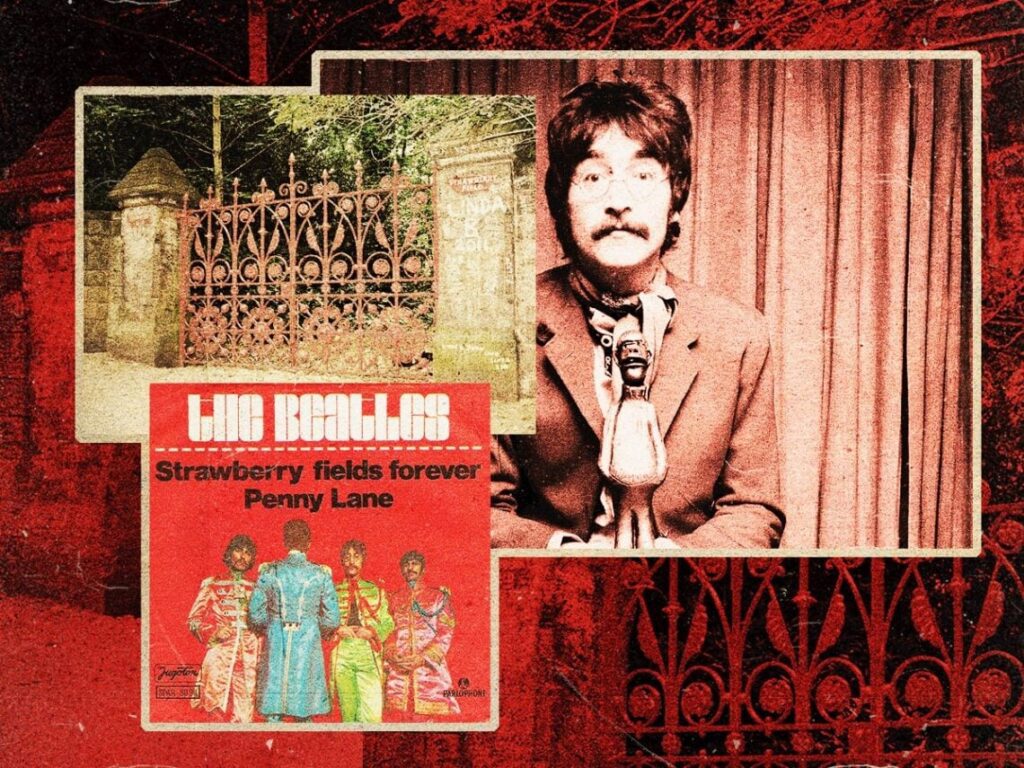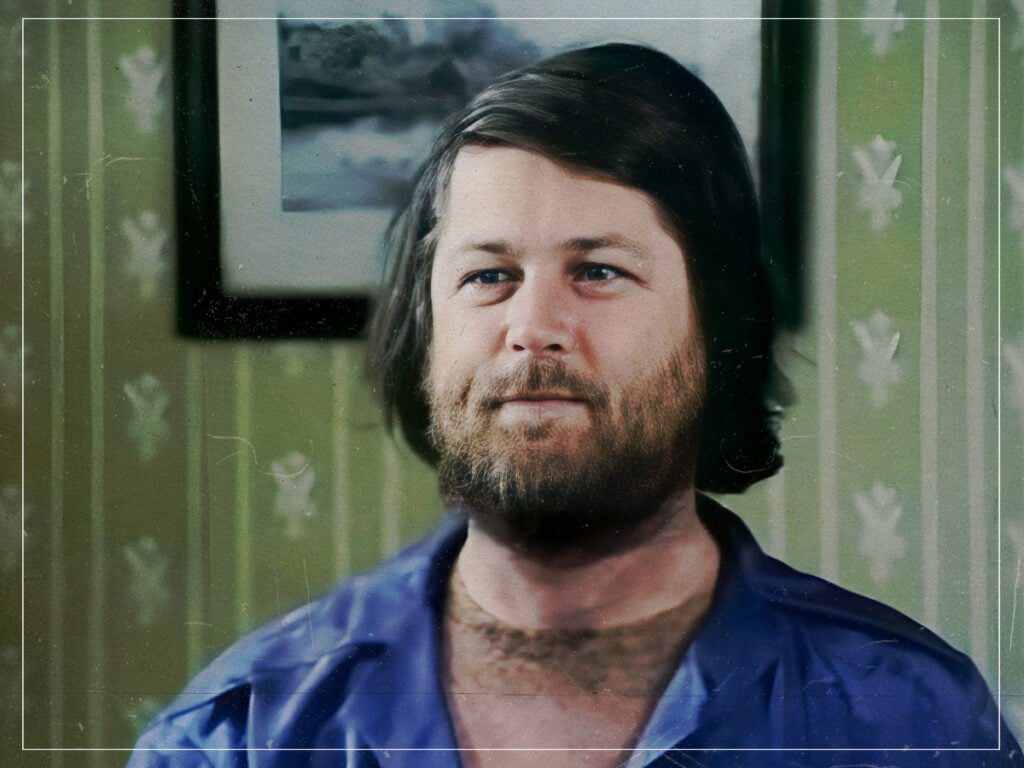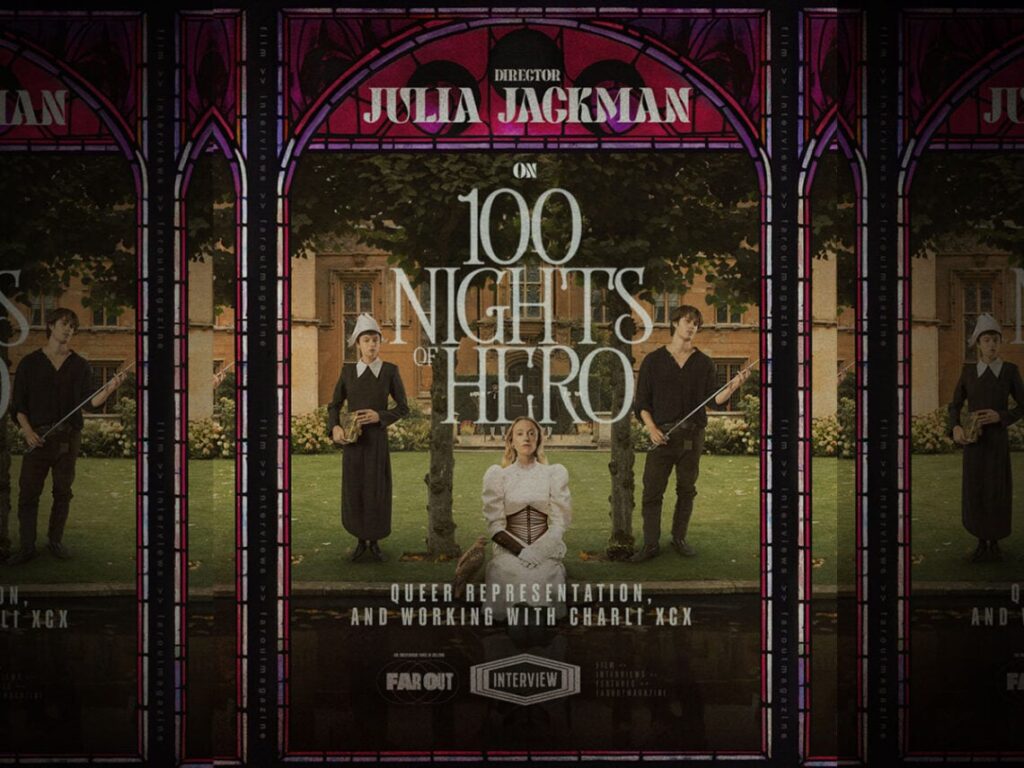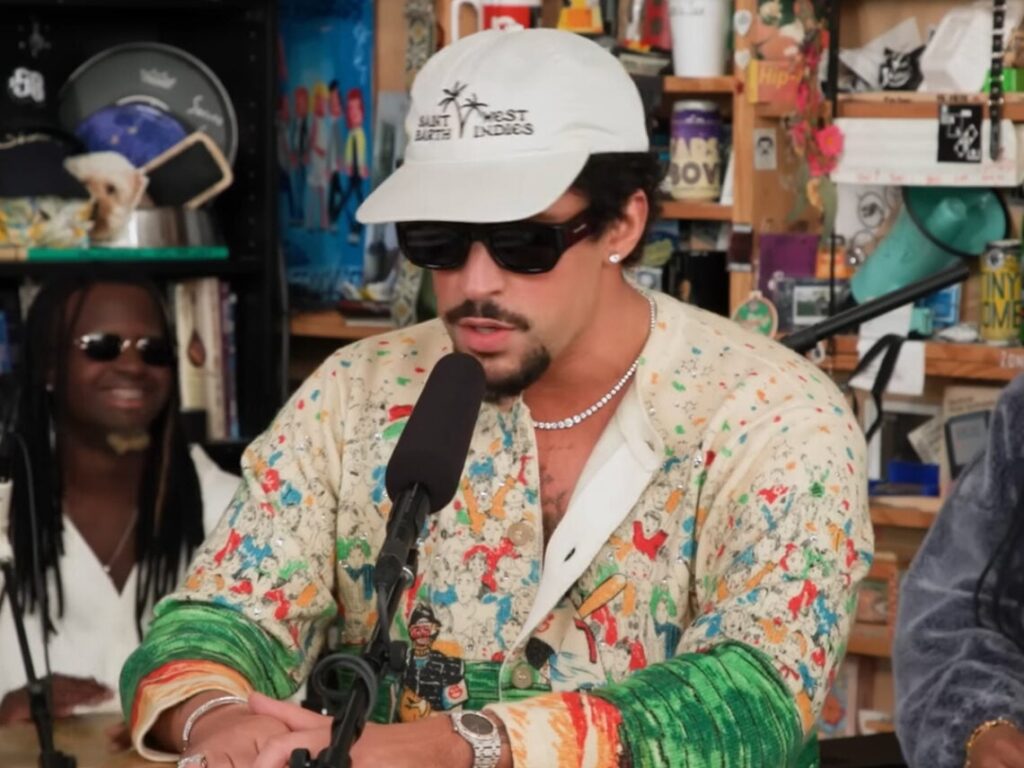Was ‘Strawberry Fields Forever’ the unbeatable peak of psychedelic rock?
 Posted On
Posted On
(Credits: Far Out / Cameronj698 / Bent Rej / Record Cover)
The start and finish of rock music’s first psychedelic era are fittingly ill-defined. The sub-genre emerged from several geographical and stylistic origins, including surf-rock of West Coast America and the bohemian streets of London, UK. The Beatles were among the first artists to dunk their brush in the psychedelic tin when they painted their transitional masterwork Rubber Soul.
If Rubber Soul was ground zero for psychedelic rock, with its revelatory sitar work and lyrical nuances, a nod is in order for Bob Dylan. The Fab Four were significantly inspired by the American songwriter’s pioneering folk-rock work on Bringing It All Back Home and Highway 61 Revisited. Dylan picked up on this and famously lashed out at Lennon for coming too close to the bone in ‘Norwegian Wood (This Bird Has Flown)’.
Bob Dylan’s mid-1960s albums and, indeed, Rubber Soul, are probably best described as proto-psychedelic works. Psychedelic rock wouldn’t truly arrive until 1966. Some musicologists deem October’s The Psychedelic Sounds of the 13th Floor Elevators to be the first official psych-rock album, but one could make a pretty compelling case for The Beach Boys’ Pet Sounds and The Beatles’ Revolver, both released earlier in the year.
In truth, a swathe of psychedelic-adjacent music arrived in 1966, though much of it went undetected by the charts and airwaves in underground scenes. As far as popular music was concerned, there was one main rivalry in psychedelia: between The Beatles and The Beach Boys. The Rolling Stones weren’t too far behind, but their work in Between the Buttons and Their Satanic Majesties Request failed to enter the big leagues.
Pet Sounds, released in May 1966, was undoubtedly Brian Wilson’s magnum opus as the leader and producer of The Beach Boys. The album was an unprecedented step forward in every sense, from lyrical genius to compositional extravagance. Wilson and his bandmates blended contemporary pop trends with psychedelic sensibilities and introduced groundbreaking contrapuntal harmonies in enduring classics like ‘God Only Knows’.
The album knocked the ball into The Beatles’ court, challenging them to one-up it. Speaking to the Stones’ guitarist Ronnie Wood in 2013, McCartney praised Wilson’s ingenuity and identified the friendly rivalry as a pivotal driver for both bands’ creative motivation. “Brian Wilson proved himself to be a really amazing composer,” McCartney said. “I was into chords, harmonies and stuff at that time and we ended up with this kind of rivalry. We put a song out, Brian would hear it, and he’d do one.”
McCartney added that the rivalry was “nice” and noted that a similar dynamic had formed within The Beatles. “Me and John, we’d try to top each other all the time,” he said. “But [Brian] eventually came out with ‘God Only Knows’; that was a sound stomper on Pet Sounds. I just think it’s a great song… melody, harmonies, words.”

Although Pet Sounds had McCartney dumbfounded, the album ironically may not have arrived as it was had The Beatles not released Rubber Soul several months before. Wilson commended The Beatles’ work on Rubber Soul in a 2017 conversation with The Beatles Story. “It had such a cool vibe, and I wanted to do something similar to it, and that’s how I came up with Pet Sounds,” he said.
Pet Sounds arrived while The Beatles were recording music for Revolver. Often described as the band’s most consummate album, Revolver featured some truly brilliant tracks, from the haunting ‘Eleanor Rigby’ to the propulsive ‘Taxman’. Notably, McCartney responded to Wilson’s masterful harmonies in ‘Here, There And Everywhere’, and Lennon knocked it out of the park with the progressive closer, ‘Tomorrow Never Knows’. Thanks to the pioneering use of tape loops and sampling, the latter was highly influential on the psychedelic wave and later electronic music developments.
In 1967, The Beatles continued to land punched on The Beach Boys with Sgt. Pepper’s Lonely Hearts Club Band, which dwarfed the sales of Smiley Smile. The indisputable highlight, ‘A Day In The Life’, was another compositional delight with its dramatic orchestral crescendo separating two disparate chapters written by Lennon and McCartney.
If I were to crown one of The Beatles’ songs as the pinnacle of psychedelic rock, it would have to be a toss-up between ‘Tomorrow Never Knows’, ‘A Day in the Life’ and ‘Strawberry Fields Forever’. The last on that list was initially intended for inclusion on Sgt. Pepper, but after pressure from EMI, the band released it as a non-album single instead. Due to its colourful accessibility, progressive composition and otherworldly atmosphere, ‘Strawberry Fields Forever’ is a favourite for many fans and quite possibly the pinnacle of psychedelic rock.
Of course, a case could be made for imminent material by The Jimi Hendrix Experience, Cream and Pink Floyd. However, few songs can match ‘Strawberry Fields Forever’ in striking that perfect balance between popular appeal and psychedelic experimentalism. This balance was sought and attained by The Beatles and The Beach Boys in the 1960s, but only one band came out on top.
Who is better placed to decide the victor than Wilson himself? When the troubled Beach Boy first heard ‘Strawberry Fields Forever’, he was driving his car high on sedatives, and as McCartney’s mellotron intro bled out into the first verse, he shed a tear somewhere between awe and envy. “I was on one of those pills, downers, and I was really relaxed, and when ‘Strawberry Fields’ came on the radio, I locked in with it,” Wilson remembered. “I had to pull over in my car to the side, and I said, ‘I’ve never heard anything like this in my life.’” With mixed emotions, he added, “They got there first.”
[embedded content]
Related Topics


